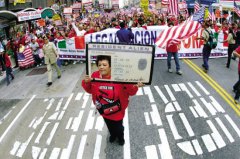Copyright law in the U.S. is based on the Copyright Act of 1976 (hereinafter referred to as the Copyright Act), a federal statute that went into effect on January 1, 1978. It protects original works of authorship including literary, dramatic, musical, and artistic works such as poetry, novels, movies, songs, computer software and architecture. It does not protect facts, ideas, systems, or methods of operation, although it may protect the way these things are expressed. To receive copyright protection, a work must be "original" and must be "fixed" in a tangible medium of expression.
Copyright protection arises automatically when an original work of authorship is fixed in a tangible medium of expression. Registration with the Copyright Office is optional (but you have to register before you file an infringement suit).
A copyright owner has exclusive rights to reproduce, modify, distribute, publicly perform and publicly display the copyrighted work. Anyone who violates any of the exclusive rights of a copyright owner is an infringer. A copyright owner can recover actual or, in some cases, statutory damages from an infringer. The federal district courts have the power to issue injunctions (orders) to prevent or restrain copyright infringement and to order the impoundment and destruction of infringing copies.
U.S. authors automatically receive copyright protection in all countries that are parties to the Berne Convention for the Protection of Literary and Artistic Works, or parties to the Universal Copyright Convention (UCC). Most countries belong to at least one of these conventions. Members of the two international copyright conventions have agreed to give nationals of member countries the same level of copyright protection they give their own nationals.
- 上一篇:Business Enterprises in General
- 下一篇:没有了
中新社华盛顿3月21日电 题:华盛顿十万人上演三月围城为移民改革鼓与呼 中新社记...


